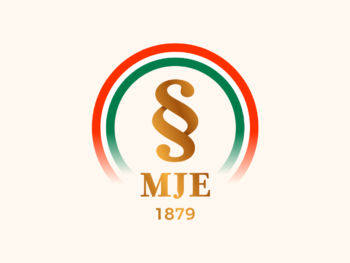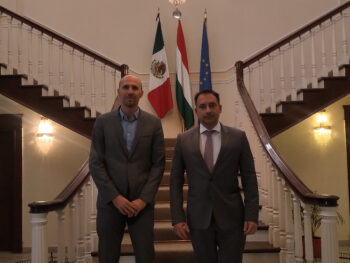Each year, on the ides of March we commemorate the 1848–49 Revolution and War of independence, which was a milestone on the route to the modern Hungarian state. In addition, not only regaining the independence of the country and national self-determination was at stake, but also the start of emancipation and achieving civil liberties. On the occasion of the national holiday, we remember on the youth of March, the Twelve Points, the Pilvax café, the Declaration of Independence, the Batthyány government, the battle of Pákozd, the Diet of Debrecen, and the Martyrs of Arad. These are the memories that connect every Hungarian within and across borders.
As lawyers, practitioners of law, however, in addition to the national holiday we may also recall the deep roots of our legal system and constitutional tradition. On the one hand, the civil reform embodied by the 1848 April laws, which based the governance of the country on a new constitutional basis that was democratic and required civil liberties to be respected. On the other hand, the message of all of this to the present, to which the Fundamental Law opened the window by naming the achievements of the Hungarian historic constitution as an important tool for interpreting the text of the Fundamental Law. Namely, Article R) section (3) of the Fundamental Law states that the provisions of the Fundamental Law shall be interpreted in accordance with their purposes, the National Avowal contained therein and the achievements of our historic constitution.
It is important to recall that before 1949, besides from a very short period, Hungary did not have a codified constitution. The main source of its constitutionalism was the Holy Crown, the main barrier to arbitrariness: public power could not be exercised exclusively either by the sovereign or a group of people or the majority. In addition, the constitution of the country consisted of common law and laws of paramount importance adopted throughout its history, like the legacy of St. Stephen, the founder of the state, the Golden Bull, the Tripartitum by Werbőczy, or the April laws of 1848, as well as in addition thereto, the unwritten but common principles. Even alien oppressors like Metternich knew: Hungary could not be governed without its own constitution – he said. The historic constitution is a Hungarian peculiarity that had a symbolic, nation-retaining force throughout history.
Hungarian constitutionalism is therefore broader than the Fundamental Law since as a principle of interpretation it encompasses the achievements of the thousand-year-old historical constitution, i.e. the sources which have stood the test of time. The Hungarian notion of constitutionalism becomes complete only with these. The Fundamental Law cannot be understood and cannot be applied without these historical roots. Our national, constitutional heritage is not something to be shown in a museum, but it is a talent that shall be harnessed. This is a task. The famous public lawyer, Győző Concha once said that each constitution is worth as much as it is implemented. Similarly to the Fundamental Law, the interpretation and enforcement of the achievements of the historic constitution, i.e. connecting them with the Fundamental Law is primarily the task of the Constitutional Court, which has already started this hard but challenging and exciting work.
In its practice the Constitutional Court considered the laws constituting the civic transformation of the 19th century as an achievement of the historic constitution, which created the conditions of modern rule of law in Hungary. While, in several other decisions, in connection with freedom of press and the abolition of prior censorship, it recalled the April laws of 1848 as integral parts of the achievements of the historic constitution. Then, the historic constitution played a key role in the practice of the Constitutional Court also as a limitation to the exercise of EU competences. Its resolution No. 22/2016. (XII. 5.) named the values defining the constitutional self-identity of the country as achievements of the historic constitution, in protection of which even the exercise of EU competences may be reviewed.
“A nation that forgets it’s past has no future” said Winston Churchill. In the spirit of this, the historic roots of our Fundamental Law and our constitutionalism creates not obscurantism but on the contrary, a future built on solid foundations and values. As lawyers, on the ides of March we also commemorate this uniqueness of Hungarian constitutionalism.
With kind regards,
Prof. László Trócsányi











 András KOLTAY: Is Free Speech Part of Christian Culture?
András KOLTAY: Is Free Speech Part of Christian Culture?